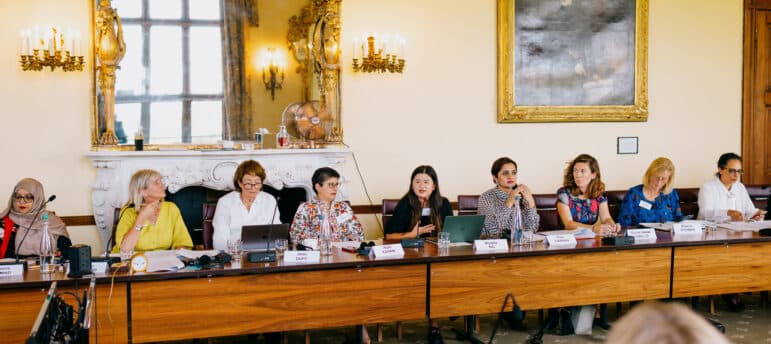
Confronting the Anthropocentric Mindset: Women, Faith and Climate Change
Earlier this month, Wilton Park, a U.K.-based center that convenes dialogues that address complex global challenges, hosted “Women, Faith and Climate Change: Working together to move faster on climate change,” a dialogue organized by Global One 2015 and Partnership for Faith and Development. The event gathered women leaders and male allies, both in the secular and faith sectors, to amplify women-led efforts, dismantle organizational silos and formulate strategies to combat climate change.
As a young woman, I was proud to discuss the significance of youth engagement and of phasing out fossil fuels at this conference. I contributed a briefing paper, “Decarbonizing our Future: The Role of Finance and Subsidies for a Sustainable World,” outlining why mitigation is so important, why shifting away from fossil fuels is the most useful mitigation tactic, and case studies that demonstrate how public financing can promote a just and equitable transition. It also highlights unique opportunities for faith communities and women to work on climate change.
Aligning our actions with the values of care, compassion, and respect, particularly in faith institutions, is one way to tackle the climate crisis.
Climate change disproportionately affects women, especially in developing countries, because it escalates existing inequalities. Women are more likely to be displaced after a climate-related disaster and are more likely to bear the most climate-related impacts on health, including mental illness and food insecurity. Despite the imbalance in burdens, women remain underrepresented in the decision-making process on environmental governance. In the same way, youth are underrepresented in environmental decision-making despite being critical innovators, practitioners, thought-leaders and communicators.
At Wilton Park, we deliberately examined our principles and attitudes towards the environment. On both an individual and societal level, we need to confront the exploitative, anthropocentric mindset that has caused the depletion of our natural resources, threatened or led to the extinction of species, and created extreme levels of pollution in the air, in water and on land. This can be done by assessing climate action through a gender, ethical and spiritual lens. Some theologians, financiers and communicators are already doing this. Aligning our actions with the values of care, compassion, and respect, particularly in faith institutions, is one way to tackle the climate crisis.
We need change on all levels – individual, local, national and global – to meet the goal of keeping temperature rise below 1.5C. For that to happen the sort of cross-collaboration that I experienced at Wilton Park is essential.
